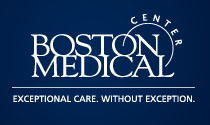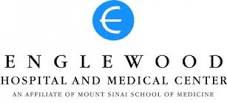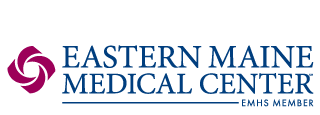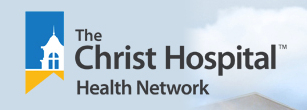ABSORB III Randomized Controlled Trial (RCT)
| Status: | Active, not recruiting |
|---|---|
| Conditions: | Peripheral Vascular Disease, Cardiology |
| Therapuetic Areas: | Cardiology / Vascular Diseases |
| Healthy: | No |
| Age Range: | 18 - Any |
| Updated: | 12/9/2018 |
| Start Date: | December 2012 |
| End Date: | April 2019 |
A Clinical Evaluation of Absorb™ BVS, the Everolimus Eluting Bioresorbable Vascular Scaffold in the Treatment of Subjects With de Novo Native Coronary Artery Lesions.
The ABSORB III RCT is a prospective randomized, single-blind, multi-center trial. It is the
pivotal trial to support the US pre-market approval (PMA) of Absorb™ Bioresorbable Vascular
Scaffold (BVS).
The ABSORB III includes additional two trials i.e. ABSORB III PK (pharmacokinetics) sub-study
and ABSORB IV RCT trial which are maintained under one protocol because both trial designs
are related, ABSORB IV is the continuation of ABSORB III and the data from ABSORB III and
ABSORB IV will be pooled to support the ABSORB IV primary endpoint. Both the trials will
evaluate the safety and effectiveness of Absorb BVS.
pivotal trial to support the US pre-market approval (PMA) of Absorb™ Bioresorbable Vascular
Scaffold (BVS).
The ABSORB III includes additional two trials i.e. ABSORB III PK (pharmacokinetics) sub-study
and ABSORB IV RCT trial which are maintained under one protocol because both trial designs
are related, ABSORB IV is the continuation of ABSORB III and the data from ABSORB III and
ABSORB IV will be pooled to support the ABSORB IV primary endpoint. Both the trials will
evaluate the safety and effectiveness of Absorb BVS.
ABSORB III RCT:
A. Primary Objective: The pivotal trial to support the US pre-market approval (PMA) of Absorb
BVS. ABSORB III will evaluate the safety and effectiveness of the Absorb BVS System compared
to the XIENCE in the treatment of subjects, including those with diabetes mellitus, with
ischemic heart disease caused by up to two de novo native coronary artery lesions in separate
epicardial vessels.
B. Powered Secondary Objectives:
1. Lead-In Phase Objective: To evaluate the applicability and transferability of the
didactic Absorb BVS physician training plan to US clinical practice.
The lead-in phase is a non-randomized, single-arm, open label group of up to 50 subjects
treated with Absorb BVS at up to 35 US sites. The Lead-In phase will enroll/register
subjects prior to the randomization phase of ABSORB III.
The Lead-In Phase allows the treatment of up to two de novo native coronary artery
lesions in different epicardial vessels with reference vessel diameter (RVD) ≥ 2.75 mm
to ≤ 3.25 mm and lesion lengths ≥ 8 to ≤ 14 mm.
2. Imaging Cohort Objective: To evaluate long-term vascular function and patency of the
Absorb BVS treated segments compared to XIENCE treated segments in the treatment of
subjects with ischemic heart disease caused by up to two de novo native coronary artery
lesions in separate epicardial vessels.
The imaging cohort-phase is a prospective, randomized (2:1 Absorb BVS to XIENCE),
single-blind, multi-center trial, registering approximately 200 subjects. This includes 150
subjects for the angiographic/intravascular ultrasound (IVUS) endpoints analysis and
approximately 50 subjects for optical coherence tomography (OCT) endpoints analysis. The 200
subjects are separate from the 2000 subjects included in the primary analysis. Data from two
powered secondary endpoints from this cohort will support label claims of superiority of
Absorb BVS as compared to XIENCE specific to vasomotion and late lumen enlargement.
All other subjects in ABSORB III unless specified will receive treatment of up to two de novo
native coronary artery lesions in different epicardial vessels with RVD ≥ 2.5 mm to ≤ 3.75 mm
and lesion lengths ≤ 24 mm.
A. Primary Objective: The pivotal trial to support the US pre-market approval (PMA) of Absorb
BVS. ABSORB III will evaluate the safety and effectiveness of the Absorb BVS System compared
to the XIENCE in the treatment of subjects, including those with diabetes mellitus, with
ischemic heart disease caused by up to two de novo native coronary artery lesions in separate
epicardial vessels.
B. Powered Secondary Objectives:
1. Lead-In Phase Objective: To evaluate the applicability and transferability of the
didactic Absorb BVS physician training plan to US clinical practice.
The lead-in phase is a non-randomized, single-arm, open label group of up to 50 subjects
treated with Absorb BVS at up to 35 US sites. The Lead-In phase will enroll/register
subjects prior to the randomization phase of ABSORB III.
The Lead-In Phase allows the treatment of up to two de novo native coronary artery
lesions in different epicardial vessels with reference vessel diameter (RVD) ≥ 2.75 mm
to ≤ 3.25 mm and lesion lengths ≥ 8 to ≤ 14 mm.
2. Imaging Cohort Objective: To evaluate long-term vascular function and patency of the
Absorb BVS treated segments compared to XIENCE treated segments in the treatment of
subjects with ischemic heart disease caused by up to two de novo native coronary artery
lesions in separate epicardial vessels.
The imaging cohort-phase is a prospective, randomized (2:1 Absorb BVS to XIENCE),
single-blind, multi-center trial, registering approximately 200 subjects. This includes 150
subjects for the angiographic/intravascular ultrasound (IVUS) endpoints analysis and
approximately 50 subjects for optical coherence tomography (OCT) endpoints analysis. The 200
subjects are separate from the 2000 subjects included in the primary analysis. Data from two
powered secondary endpoints from this cohort will support label claims of superiority of
Absorb BVS as compared to XIENCE specific to vasomotion and late lumen enlargement.
All other subjects in ABSORB III unless specified will receive treatment of up to two de novo
native coronary artery lesions in different epicardial vessels with RVD ≥ 2.5 mm to ≤ 3.75 mm
and lesion lengths ≤ 24 mm.
General Inclusion Criteria:
1. 18 years of age.
2. Subject or a legally authorized representative must provide written Informed Consent
prior to any study related procedure, per site requirements.
3. Subject must have evidence of myocardial ischemia. In the absence of noninvasive
ischemia, fractional flow reserve (FFR) must be done and indicative of ischemia.
4. Acceptable candidate for coronary artery bypass graft (CABG) surgery.
5. Female subject of childbearing potential who does not plan pregnancy for up to 1 year
following the index procedure. For a female subject of childbearing potential a
pregnancy test must be performed with negative results known within 7 days prior to
the index procedure per site standard.
6. Female subject is not breast-feeding at the time of the screening visit and will not
be breast-feeding for up to 1 year following the index procedure.
7. Subject agrees to not participate in any other investigational or invasive clinical
study for a period of 1 year following the index procedure.
General Exclusion Criteria:
1. Any surgery requiring general anesthesia or discontinuation of aspirin and/or an
adenosine diphosphate (ADP) antagonist is planned within 12 months after the
procedure.
2. Hypersensitivity or contraindication to device material and its degradants
(everolimus, poly (L-lactide), poly (DL-lactide), lactide, lactic acid) and cobalt,
chromium, nickel, platinum, tungsten, acrylic and fluoro polymers that cannot be
adequately pre-medicated. Subject has a known contrast sensitivity that cannot be
adequately pre-medicated.
3. Allergic reaction, hypersensitivity or contraindication to aspirin; or to clopidogrel
and prasugrel and ticagrelor; or to heparin and bivalirudin, and therefore cannot be
adequately treated with study medications.
4. Acute myocardial infarction (AMI: STEMI or NSTEMI) within 72 hours of the index
procedure and both creatine kinase (CK) and CK-MB have not returned to within normal
limits at the time of index procedure; or subject with stable angina or silent
ischemia has CK-MB that is greater than normal limits at the time of the index
procedure.
5. Subject is currently experiencing clinical symptoms consistent with new onset AMI
(STEMI or NSTEMI), such as nitrate-unresponsive prolonged chest pain with ischemic ECG
changes.
6. Cardiac arrhythmia as identified at the time of screening for which at least one of
the following criteria is met:
(NOTE: Investigator should use discretion when enrolling subjects with high CHADS
scores)
1. Subject requires coumadin or any other agent for chronic oral anticoagulation
2. Subject is likely to become hemodynamically unstable due to their arrhythmia
3. Subject has poor survival prognosis due to their arrhythmia
7. Left ventricular ejection fraction (LVEF) < 30%.
8. Subject has undergone prior percutaneous coronary intervention (PCI) within the target
vessel during the last 12 months. Prior PCI within the non-target vessel or any
peripheral intervention is acceptable if performed anytime >30 days before the index
procedure, or between 24 hours and 30 days before the index procedure if successful
and uncomplicated.
9. Future staged PCI either in target or non-target vessels or subject requires future
peripheral interventions < 30 days after the index procedure.
10. Subject has received any solid organ transplants or is on a waiting list for any solid
organ transplants.
11. At the time of screening, the subject has a malignancy that is not in remission.
12. Subject is receiving immunosuppressant therapy or has known immunosuppressive or
severe autoimmune disease that requires chronic immunosuppressive therapy (e.g., human
immunodeficiency virus, systemic lupus erythematosus, etc.). Note: corticosteroids are
not included as immunosuppressant therapy.
13. Subject has previously received or is scheduled to receive radiotherapy to a coronary
artery (vascular brachytherapy), or the chest/mediastinum.
14. Subject is receiving or will require chronic anticoagulation therapy (e.g., coumadin,
dabigatran, apixaban, rivaroxaban or any other agent for any reason).
15. Subject has a platelet count < 100,000 cells/mm3 or > 700,000 cells/mm3.
16. Subject has a documented or suspected hepatic disorder as defined as cirrhosis or
Child-Pugh ≥ Class B.
17. Renal insufficiency. NOTE: Estimated glomerular filtration rate (GFR) can be based on
Modification of Diet in Renal Disease (MDRD) equation or Cockcroft-Gault equation
(CCG).
18. High risk of bleeding for any reason; has a history of bleeding diathesis or
coagulopathy; has had a significant gastro-intestinal or significant urinary bleed
within the past six months.
19. Cerebrovascular accident or transient ischemic neurological attack (TIA) within the
past six months, or any prior intracranial bleed, or any permanent neurologic defect,
or any known intracranial pathology (e.g., aneurysm, arteriovenous malformation,
etc.).
20. Extensive peripheral vascular disease that precludes safe 6 French sheath insertion.
Note: femoral arterial disease does not exclude the patient if radial access may be
used.
21. Subject has life expectancy < 5 years for any non-cardiac cause or cardiac cause.
22. Subject is in the opinion of the Investigator or designee, unable to comply with the
requirements of the study protocol or is unsuitable for the study for any reason. This
includes completion of Patient Reported Outcome instruments.
23. Subject is currently participating in another clinical trial that has not yet
completed its primary endpoint.
24. Vulnerable population.
Angiographic Inclusion Criteria:
1. One or two de novo target lesions:
1. If there is one target lesion, a second non-target lesion may be treated but the
non-target lesion must be present in a different epicardial vessel, and must be
treated first with a successful, uncomplicated result prior to randomization of
the target lesion.
2. If two target lesions are present, they must be present in different epicardial
vessels and both must satisfy the angiographic eligibility criteria.
3. The definition of epicardial vessels means the LAD, LCX and RCA and their
branches. Thus, the patient must not have lesions requiring treatment in e.g.
both the LAD and a diagonal branch.
2. Target lesion(s) must be located in a native coronary artery with a visually estimated
or quantitatively assessed % diameter stenosis (DS) of ≥ 50% and < 100% with a
thrombolysis in myocardial infarction (TIMI) flow of ≥1 and one of the following:
stenosis ≥ 70%, an abnormal functional test (e.g. fractional flow reserve, stress
test), unstable angina or post-infarct angina.
1. Lesion(s) must be located in a native coronary artery with RVD by visual
estimation of ≥ 2.5 mm and ≤ 3.75 mm.
2. Lesion(s) must be located in a native coronary artery with length by visual
estimation of ≤ 24 mm.
3. For Lead-In subjects with 3.0x18 mm Absorb BVS: lesion(s) must be located in a
native coronary artery with RVD by visual estimation of ≥ 2.75 mm and ≤ 3.25 mm.
The lesion length by visual estimation is ≥ 8 mm and ≤ 14 mm.
Angiographic Exclusion Criteria:
All exclusion criteria apply to the target lesion(s) or target vessel(s).
1. Lesion which prevents successful balloon pre-dilatation, defined as full balloon
expansion with the following outcomes:
1. Residual %DS is a maximum of < 40% (per visual estimation), ≤ 20% is strongly
recommended.
2. TIMI Grade-3 flow (per visual estimation).
3. No angiographic complications (e.g. distal embolization, side branch closure).
4. No dissections National Heart Lung and Blood Institute (NHLBI) grade D-F.
5. No chest pain lasting > 5 minutes.
6. No ST depression or elevation lasting > 5 minutes
2. Lesion is located in left main.
3. Aorto-ostial right coronary artery (RCA) lesion (within 3 mm of the ostium).
4. Lesion located within 3 mm of the origin of the Left Anterior Descending Artery (LAD)
or left circumflex artery (LCX).
5. Lesion involving a bifurcation with a:
1. side branch ≥ 2 mm in diameter, or
2. side branch with either an ostial or non-ostial lesion with diameter stenosis >
50%, or
3. side branch requiring dilatation.
6. Anatomy proximal to or within the lesion that may impair delivery of the Absorb BVS or
XIENCE stent:
1. Extreme angulation (≥ 90°) proximal to or within the target lesion.
2. Excessive tortuosity (≥ two 45° angles) proximal to or within the target lesion.
3. Moderate or heavy calcification proximal to or within the target lesion. If IVUS
used, subject must be excluded if calcium arc in the vessel prior to the lesion
or within the lesion is ≥ 180°.
7. Vessel contains thrombus as indicated in the angiographic images or by IVUS or OCT.
8. Lesion or vessel involves a myocardial bridge.
9. Vessel has been previously treated with a stent at any time prior to the index
procedure such that the Absorb BVS or XIENCE would need to cross the stent to reach
the target lesion.
10. Vessel has been previously treated and the target lesion is within 5 mm proximal or
distal to a previously treated lesion.
11. Target lesion located within an arterial or saphenous vein graft or distal to any
arterial or saphenous vein graft.
We found this trial at
194
sites
Sparrow Hospital Sparrow has grown to become the region's largest health system, and its diverse...
Click here to add this to my saved trials
Brigham and Women's Hosp Boston’s Brigham and Women’s Hospital (BWH) is an international leader in...
Click here to add this to my saved trials
3550 Jerome Avenue
Bronx, New York 10467
Bronx, New York 10467
(718) 920-4321

Principal Investigator: Vankeepuram Srinivas, M.D.
Montefiore Medical Center As the academic medical center and University Hospital for Albert Einstein College...
Click here to add this to my saved trials
Click here to add this to my saved trials
Cleveland Clinic Cleveland Clinic is committed to principles as presented in the United Nations Global...
Click here to add this to my saved trials
Inova Fairfax Hospital Inova Fairfax Hospital, Inova's flagship hospital, is an 833-bed, nationally recognized regional...
Click here to add this to my saved trials
Holy Cross Hospital While spirituality plays an essential role in the way that we minister...
Click here to add this to my saved trials
Click here to add this to my saved trials
Click here to add this to my saved trials
8700 Beverly Blvd # 8211
Los Angeles, California 90048
Los Angeles, California 90048
(1-800-233-2771)

Principal Investigator: Rajendra Makkar, M.D.
Cedars Sinai Med Ctr Cedars-Sinai is known for providing the highest quality patient care. Our...
Click here to add this to my saved trials
1211 Medical Center Dr
Nashville, Tennessee 37232
Nashville, Tennessee 37232
(615) 322-5000

Vanderbilt Univ Med Ctr Vanderbilt University Medical Center (VUMC) is a comprehensive healthcare facility dedicated...
Click here to add this to my saved trials
Mount Sinai Med Ctr Founded in 1852, The Mount Sinai Hospital is a 1,171-bed, tertiary-care...
Click here to add this to my saved trials
Click here to add this to my saved trials
22 Bramhall St
Portland, Maine 04102
Portland, Maine 04102
(207) 662-0111

Principal Investigator: Thomas Ryan, Jr., M.D.
Maine Medical Center One of the country's consistently highest rated hospitals is right in your...
Click here to add this to my saved trials
Rhode Island Hospital Founded in 1863, Rhode Island Hospital in Providence, RI, is a private,...
Click here to add this to my saved trials
Click here to add this to my saved trials
1 Tampa General Cir
Tampa, Florida 33606
Tampa, Florida 33606
(813) 844-7000

Principal Investigator: Fadi Matar, M.D.
Tampa General Hospital In a diverse city known for its rich culture and beautiful beaches,...
Click here to add this to my saved trials
Abington Memorial Hospital Abington Memorial Hospital (AMH) is a 665-bed, regional referral center and teaching...
Click here to add this to my saved trials
Click here to add this to my saved trials
Click here to add this to my saved trials
Click here to add this to my saved trials
Click here to add this to my saved trials
Piedmont Hospital For more than a century, Piedmont Healthcare has been a recognized leader in...
Click here to add this to my saved trials
5665 Peachtree Dunwoody Rd NE
Atlanta, Georgia 30342
Atlanta, Georgia 30342
(678) 843-7001

Principal Investigator: William Lieppe, M.D.
Saint Joseph's Hospital of Atlanta Founded by the Sisters of Mercy in 1880, Saint Joseph
Click here to add this to my saved trials
1364 Clifton Rd NE
Atlanta, Georgia 30322
Atlanta, Georgia 30322
(404) 712-2000

Principal Investigator: Habib Samady, M.D.
Emory University Hospital As the largest health care system in Georgia and the only health...
Click here to add this to my saved trials
Click here to add this to my saved trials
Click here to add this to my saved trials
Eastern Maine Medical Center Located in Bangor, Eastern Maine Medical Center (EMMC) serves communities throughout...
Click here to add this to my saved trials
Click here to add this to my saved trials
Click here to add this to my saved trials
Click here to add this to my saved trials
Birmingham, Alabama 35294
Principal Investigator: Massoud Leesar, M.D.
Click here to add this to my saved trials
1 Boston Medical Center Place
Boston, Massachusetts 02118
Boston, Massachusetts 02118
617.638.8000

Boston University Medical Center Boston Medical Center is an extraordinary community of health care providers...
Click here to add this to my saved trials
Click here to add this to my saved trials
Click here to add this to my saved trials
Fletcher Allen Health Care As Vermont’s University Medical Center, we at Fletcher Allen are committed...
Click here to add this to my saved trials
Click here to add this to my saved trials
171 Ashley Avenue
Charleston, South Carolina 29425
Charleston, South Carolina 29425
843-792-1414

Medical University of South Carolina The Medical University of South Carolina (MUSC) has grown from...
Click here to add this to my saved trials
Click here to add this to my saved trials
Presbyterian Hospital At Novant Health Presbyterian Medical Center, we are welcoming a new era in...
Click here to add this to my saved trials
Click here to add this to my saved trials
Northwestern Memorial Hospital Northwestern Memorial is an academic medical center hospital where the patient comes...
Click here to add this to my saved trials
Click here to add this to my saved trials
Click here to add this to my saved trials
Click here to add this to my saved trials
The Christ Hospital For more than 120 years, The Christ Hospital has been a leader...
Click here to add this to my saved trials
Click here to add this to my saved trials
University Hospitals of Cleveland The history of University Hospitals Case Medical Center is linked to...
Click here to add this to my saved trials
Click here to add this to my saved trials
Click here to add this to my saved trials
Columbia, South Carolina 29204
Principal Investigator: Patrick Hall, M.D.
Click here to add this to my saved trials
Click here to add this to my saved trials
Riverside Methodist Hospital Serving central Ohio since 1892, Riverside Methodist Hospital is consistently ranked one...
Click here to add this to my saved trials
Concord, California 94520
Principal Investigator: Gary Gershony, M.D.
Click here to add this to my saved trials
Click here to add this to my saved trials
Geisinger Medical Center Since 1915, Geisinger Medical Center has been known as the region’s resource...
Click here to add this to my saved trials
Click here to add this to my saved trials
Click here to add this to my saved trials
Click here to add this to my saved trials
Click here to add this to my saved trials
Henry Ford Hospital Founded in 1915 by auto pioneer Henry Ford and now one of...
Click here to add this to my saved trials
Click here to add this to my saved trials
Duke Univ Med Ctr As a world-class academic and health care system, Duke Medicine strives...
Click here to add this to my saved trials
Click here to add this to my saved trials
350 Engle St
Englewood, New Jersey 07631
Englewood, New Jersey 07631
(201) 894-3000

Principal Investigator: Joseph DeGregorio, M.D.
Englewood Hospital and Medical Center Englewood Hospital was incorporated in 1888 as a non-profit, non-sectarian...
Click here to add this to my saved trials
Click here to add this to my saved trials
Click here to add this to my saved trials
Click here to add this to my saved trials
Click here to add this to my saved trials
Click here to add this to my saved trials
Click here to add this to my saved trials
Northeast Georgia Medical Center Northeast Georgia Health System (NGHS) is a not-for-profit community health system...
Click here to add this to my saved trials
Click here to add this to my saved trials
Click here to add this to my saved trials
Click here to add this to my saved trials
Click here to add this to my saved trials
Haddon Heights, New Jersey 08035
Principal Investigator: Vijayendra Verma, M.D.
Click here to add this to my saved trials
Click here to add this to my saved trials
Click here to add this to my saved trials
Click here to add this to my saved trials
Click here to add this to my saved trials
Click here to add this to my saved trials
Hyattsville, Maryland 20782
Principal Investigator: Ron Waksman, M.D.
Click here to add this to my saved trials
Click here to add this to my saved trials
Click here to add this to my saved trials
Click here to add this to my saved trials
Click here to add this to my saved trials
Click here to add this to my saved trials
Click here to add this to my saved trials
Borgess Medical Center At Borgess, healing is our calling. This is the place where people...
Click here to add this to my saved trials
Click here to add this to my saved trials
Kettering Medical Center Our flagship hospital, Kettering Medical Center, stands proudly in Kettering, Ohio. From...
Click here to add this to my saved trials
Kingsport, Tennessee 37660
Principal Investigator: Christopher D. Metzger, M.D.
Click here to add this to my saved trials
Click here to add this to my saved trials
Click here to add this to my saved trials
Click here to add this to my saved trials
Click here to add this to my saved trials
1 Medical Center Dr
Lebanon, New Hampshire 03756
Lebanon, New Hampshire 03756
(603) 650-5000

Principal Investigator: Aaron Kaplan, M.D.
Dartmouth Hitchcock Medical Center Dartmouth-Hitchcock is a national leader in patient-centered health care and building...
Click here to add this to my saved trials






















